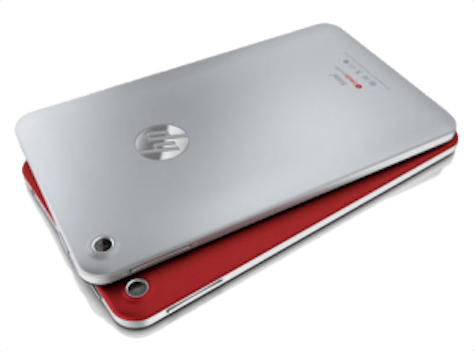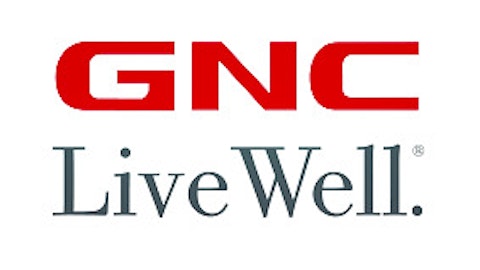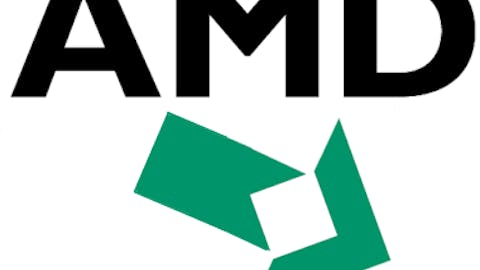
Since Apple Inc. (NASDAQ:AAPL) has been feeling the pressure from lower priced Android competitors in the smartphone business, many believe that this new product is a sign of trouble for Apple and its iPad. Henry Blodget from Business Insider, for example, has recently published an article entitled: “HP’s New $169 Tablet Is a Missile Fired Right At Apple”
Apple will most likely lose market share over lower cost Android tablets in the middle term, but that’s perfectly fine, even natural. Besides, it’s not precisely Apple Inc. (NASDAQ:AAPL) who needs to worry about the ultra low priced Slate7.
The rise of the Android tablet
A couple of years ago, the iPad was both the best and the cheapest tablet in the market. This was mostly because Google Inc (NASDAQ:GOOG) had not yet launched a tablet-optimized Android version, and hardware manufacturers were well behind Apple Inc. (NASDAQ:AAPL) in terms of quality. Then came Amazon.com, Inc. (NASDAQ:AMZN) with its amazingly cheap Kindle products, and Google’s Nexus 7 received some really positive reviews while offering a competitively priced alternative at $200 per unit versus $329 for an iPad Mini.
Manufacturers like Samsung and Asus will continue introducing new Android tablets with different price levels over the next years, and this will almost certainly mean growing market share for Android in the middle term. The new Slate 7 from Hewlett-Packard Company (NYSE:HPQ) needs to be analyzed in this context; it competes against lower priced Android tablets, not so much against the iPad.
Seeing it from the perspective of a potential customer, you would probably first need to decide if you are going for an iPad – different ecosystem, brand image, quality etc. – or if a lower priced Android tablet is a better choice for you. If you choose Android, that’s when you need to compare the new Hewlett-Packard Company (NYSE:HPQ) tablet versus alternatives from Amazon, Samsung and other manufacturers.
We still need to see how the Slate 7 works, but HP won’t have an easy time competing in the tablet market. The price difference of $169 versus $200 for a Kindle Fire or a Nexus 7 is relevant, but still not an absolute game changer. Even if HP can deliver a competitive product in terms of functionality, other manufacturers have a better reputation in consumer electronics, and HP is coming late to the tablet party.
The point remains that HP still needs to prove it can compete in the low end of the market. The fight between Apple Inc. (NASDAQ:AAPL) and Android tablets is a whole different thing, and HP doesn’t even qualify for that competition right now.
On innovation and market share
According to IDC, Apple had a 51% market share in tablets during 2012, while Android alternatives were led by Amazon with 20.1% of the tablets market, Samsung and Asus came in third and fourth place with 8.2% and 7.3% of the market, respectively. Apple Inc. (NASDAQ:AAPL) is still solidly dominant, but Android tablets have been gaining participation over the last months, and most analysts believe that the trend towards market share gains for Android products will continue in the middle term.
Competitors have been closing the quality gap against the iPad lately, which is the natural thing to expect in the tech industry. Innovators develop a new and disruptive product that brings something unique to the market; this means disproportionate market share gains in the first stages. Over time, other companies start offering competitive alternatives, both in terms of price and quality, and this usually means that the market participation becomes more fragmented.
None of this means that Apple will stop growing though, only that Android tablets will grow proportionally faster than the iPad, which is a very different thing. Many of those low cost tablets are sold at razor thin or even negative profit margins, so the comparison between Apple and its low cost competitors is not entirely fair. While other companies may be gaining market share, Apple is still the undisputed profitability leader in tablets.
Apple has accepted a lower profit margin with the iPad Mini versus previous iPad models, and the device has been selling faster than it could be manufactured during the holiday quarter. There is really no compelling reason for Apple to move lower on the pricing scale since demand for the iPad Mini is already booming at current prices.
Apple sells premium products for premium prices, it’s not only abut technological advantages but also design, brand loyalty, and the stickiness created by services like iTunes. In fact, higher prices create brand differentiation, and they can even be a positive marketing attribute for some clients.
In an ideal world for Apple, the company would forever be the quality leader and the cheapest alternative in the space; such was the situation in 2011 when the iPad was in its first stages and it had a market share above 90%. But that kind of scenario doesn’t last for too long in a competitive industry, and this still doesn’t mean that there is anything wrong with Apple: as long as the company remains strong in the high end of the market, it will still be able to generate solid returns for investors.
Bottom line
The new Slate 7 from HP still needs to prove that it can effectively compete in the low end of the market, since lower prices are no guarantee of success on a standalone basis. Even if it manages to do that, it would still mostly affect other Android tablets manufacturers like Amazon and Asus, Apple is just playing a different game.
The article Should Apple Fear the New Low Cost Tablet From HP? originally appeared on Fool.com and is written by Andrés Cardenal.
Copyright © 1995 – 2013 The Motley Fool, LLC. All rights reserved. The Motley Fool has a disclosure policy.





